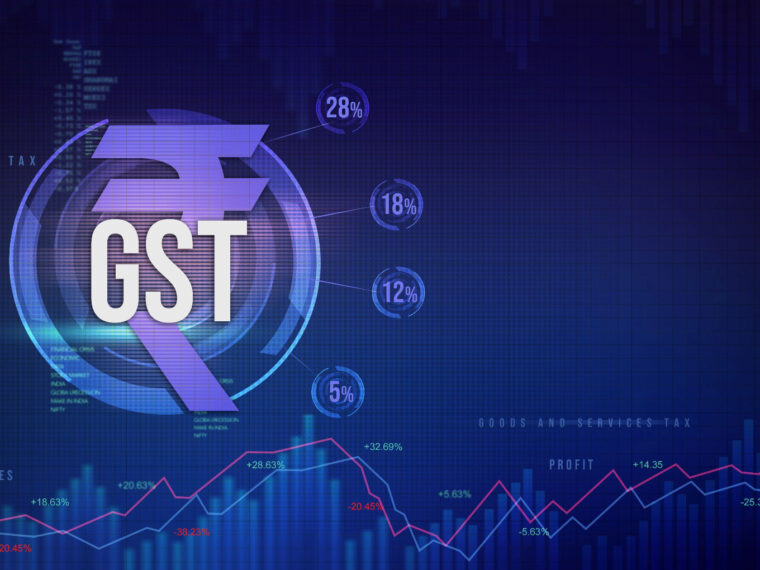
Dream11 has been issued a tax demand of INR 25,000 Cr, while its last known public valuation is INR 60,000 Cr
Such notices inevitably raise pertinent questions on the frictions of doing business in India
There are also serious economic implications involved – while the big companies might be prepared to operate in this uncertain environment, what do we expect the small startups to do?
The recent news of slapping huge GST tax demand notices on several companies operating in the nascent egaming sector surprised many. What did not surprise was the aggrieved parties’ decision to take the dispute to court.
Of course, the stakes involved were big. Goan casino operator and now an online gaming company Delta Corp was recently issued a notice of INR 16,800 Cr in tax arrears, an amount is more than double the company’s last decade’s revenue. Delta’s revenues for the last five years amount to INR 2,260 Cr, according to Moneycontrol. The net profit stood at INR 660 Cr with INR 220 Cr worth of taxes paid.
Dream11, on the other hand, has been issued a tax demand of INR 25,000 Cr, while its last known public valuation is INR 60,000 Cr. Previously, the largest such demand of INR 21,000 Cr was sent to Gameskraft Technology.
The company subsequently approached the Karnataka High Court, leading to the quashing of the GST demand, underscoring the fact that no company would passively stand by while their house is being taken away. Following this, an appeal has been lodged with the Supreme Court.
These notices also inevitably raise pertinent questions on the frictions of doing business in India. We at India Development Foundation are currently conducting research on the impact of Indian regulations and their impact on Private Venture investments. During our multiple conversations with senior partners at leading VC firms, we were surprised to learn that the Indian “friction factor” is a given and is factored into the business and financial models by investors.
The powerful of course understands it is holding all the cards in this zero-sum game. As a former union minister famously remarked during the peak of the Vodafone tax case, “Investors have no choice but to come to India.”
There are also serious economic implications involved – while the big companies might be prepared to operate in this uncertain environment, what do we expect the small startups to do? If businesses have to live in fear and uncertainty not knowing when and how the next strike will come from up above, it perversely incentivizes small businesses to stay small, for they can sense that growing big will attract undesirable attention.
If starting a business in India involves taking risks, growing it requires serious commitment. One must settle down, register their company locally, hire, grow, raise and invest money, and then stay put for 10 or 20 years to reach a certain scale.
It is no hidden secret that many Indian startups like to register their businesses in Singapore, Dubai or other locations. Others do it after reaching a certain scale, in order to show that they are still small in India.
As many as 1,777 foreign companies have closed their place of business in India, as per a Lok Sabha submission in 2022. The question to ask is why are these companies shutting down?
Uncertainty in policy making leaves all businesses grappling with the fear of the unknown – what new regulatory demand is coming up and when? Take for example the GST tax notice issued to gaming companies.
This notice is for the period between 2017 and June 30, 2022, which is puzzling as the amendments don’t mention retrospective application, and they are being called “clarificatory” and are still said to apply to past periods.
Another example is of the Data Protection Act – the importance of Data Protection was first mooted by the AP Shah Committee in 2012. It took 11 years for India to finally pass a law. Similarly, “Cloud computing” was first mentioned by the DoT in 2012, but we still don’t have a coherent or even a draft National Cloud Strategy (Meghraj is about GI Cloud).
In contrast, a committee was setup in February 2023, to come out with an entire draft law on digital competition in three months flat. It is still in the works. In April 2023, a circular was issued to set up Gaming SROs, ostensibly to weed out the fly by night operators and protect consumers.
A three-month deadline was given, which has long passed. The process is still in the works. Many companies such as Fantok, a gaming platform, are suspending operations citing uncertainty in regulations as a reason.
In earlier prominent cases, such as the Vodafone-Hutchison retrospective tax dispute a protracted disagreement unfolded between the Indian government and Vodafone regarding capital gains taxes. This situation underscored the prevailing uncertainty within India’s tax landscape.
All around uncertainty in policymaking significantly increases the India friction factor. While the big guys can afford to go to court, the small guys keep wondering if they must stay small in India or take their businesses outside India.
While the entrepreneurs would like to set up their businesses abroad, the investors in turn keep their friction-adjusted financial models in place, while continuing to look for greener and smoother pastures.
India has received roughly INR 6.5 Lakh Cr (or $77.5 Bn) of funding through the private route into startups over the last 15 years alone, according to data from Tracxn. In -commerce alone, India has created over 33,000 startups.
The question is what these numbers would have been like if the “India friction factor” was reduced by 0.5% or 1% or 2% or if there were more regulatory certainty. Perhaps the financial models of VC firms can tell us that.























